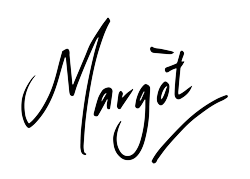“Productivity is never an accident. It is always the result of a commitment to excellence, intelligent planning and focussed effort” – Paul J Meyer
Productivity is never an accident. As business leaders today, we are constantly challenged to increase both productivity and profitability whilst being asked to conserve resources and do ‘more with less’.
As the quote above suggests, to do this requires an unwavering commitment to excellence, intelligent planning and highly focused effort. There is however one additional area I believe we need to build an unwavering commitment to developing: Trust.
Trust, which is widely regarded as the glue to any healthy and productive relationship, appears to be on the rise in some sectors of work, placing a greater emphasis building trust between the employee-employer relationship than ever before.
According to The 2019 Edelman Trust Barometer, trust has changed profoundly in the past year. In 17 markets including Australia, the research revealed that “people have shifted their trust to the relationships within their control, most notably their employers.”
The research showed that 77% of respondents in Australia trust “my employer”, which was considerably more than NGOs (56%), business (52%) and government (52%).
The correlation between greater organisational productivity was also strong, where employers that work to build trust will be rewarded; Australian employees who have trust in their employer demonstrate greater advocacy (80%), loyalty (71%), engagement (69%) and commitment (87%).
It comes as no surprise, then, that a lack of trust can not only mean a leadership crisis, but also a productivity crisis. When we don’t believe or trust those around us it not only sets in motion a tidal wave of negative attitudes and emotions, it actually significantly impacts our ways of thinking and behaving. So much so that it can all too easily become the biggest blocker to personal, team and organisational productivity.
Patrick Lencioni who is widely regarded for his work in team development and organisational performance identifies trust as the most basic requirement to building high performance. His pyramid The Five Dysfunctions of A Team defines the core problems of unproductive teams and subsequently by default the requirements for a high functioning and productive team:
Failing to build trust can affect each level of the pyramid, crippling the potential of a productive team if not established on a strong, trust-based foundation. Only people with high trust between each other will take risks, engage in healthy robust debate, seek solutions, commit to a vision, hold each other accountable and focus on delivering measurable results.
Stephen Covey’s analogy of trust as a tax or a dividend is particularly apt: When there is a lack of trust in a relationship or organisation, it is like a hidden tax that is placed on every transaction, piece of communication, decision and strategy, which brings speed down and sends costs up. By contrast, individuals and companies that operate with high levels of trust reap the benefits of a dividend that enables them to succeed by multiplying performance, productivity and capability.
Lack of trust therefore has the capacity to dramatically increase the cost of doing business and triple the delivery timeframes; where as high trust has the capacity to not only significantly save time, money and angst but also deepen relationships, build greater collaboration, career fulfillment and success for all involved.
So how do the most successful leaders build trust?
- Establish purpose and commitment: from individuals and between individuals
- Communicate honestly and transparently: by talking straight and keeping it real!
- Ensure actions match words: removing ambiguity and taking the guess work out of situations
- Deliver results: that offer lasting and meaningful value
- Listen and observe: Not just to those that shout the loudest but to all members of a team
- Demonstrate consistency: If you do what you say and say what you do, people will trust you
- Remove the ‘landmines’: the hidden agendas, the vagueness and doubt
- Clarify expectations, purpose and commitment: contributions, behaviours and attitudes
- Value accountability: both for themselves and the team’s that they lead
- Remain engaged: with individuals, objectives, processes and outcomes
- Acknowledge and give credit where credit is due: both individually and publicly
For leaders, trust is two fold. There is a very real need to engender it and you need to be able to give it. Without both, productivity is almost always compromised. The most successful leaders recognise this and focus on creating it as a core objective.
Trust is not just a nice-to-have. It is a critical component of personal, team and organizational performance. It is a clear enabler of productivity and one that underpins your leadership skill set and true capability.
The logic is simple: if people trust you and that trust is reciprocated, they will give you their all. If people give you their all they are more willing to go the extra mile, more likely to perform at remarkably high levels and apply extraordinarily levels of discretionary effort. Productivity therefore becomes the natural outcome.
Do you feel your organisation’s leadership engenders trust? Where could there be opportunities to build trust within your business? As always I would love to hear your thoughts.



